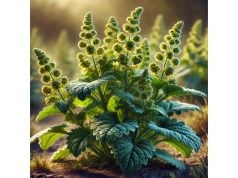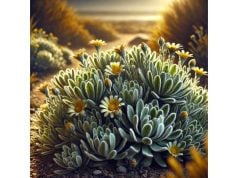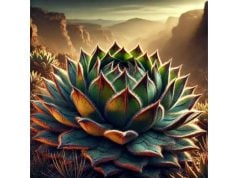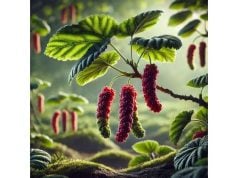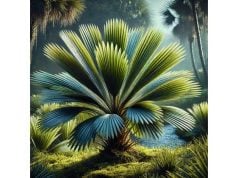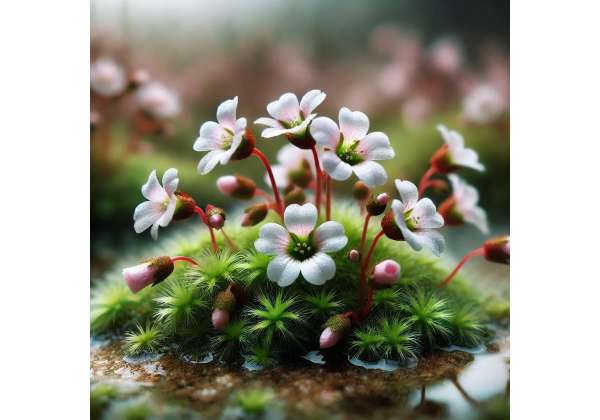
Diodia is an extraordinary herb that has been quietly making its mark in traditional medicine and holistic wellness practices across various cultures. Known for its resilience and unique therapeutic attributes, Diodia has been used for generations to help alleviate common ailments, support digestive health, and promote overall well-being. Its vibrant green foliage and delicate flowers belie the potent bioactive compounds hidden within its leaves and stems. Whether you are a seasoned herbalist or simply curious about natural remedies, Diodia offers a rich tapestry of benefits waiting to be uncovered.
With its storied history and modern-day applications, Diodia stands as a testament to nature’s enduring capacity to nurture and heal. This versatile herb, often found in warm, tropical regions as well as in temperate climates, is celebrated not only for its medicinal properties but also for its ornamental value. Today, scientists are beginning to validate many of the traditional uses of Diodia, lending a modern lens to its ancient legacy.
- Supports digestive health and aids in relieving gastrointestinal discomfort
- Acts as a natural anti-inflammatory and antioxidant
- Helps soothe skin irritations and minor wounds
- Contributes to overall immune system support
- Offers potential benefits for cardiovascular health and metabolic balance
Table of Contents
- Diodia: Botanical Insights and Distinctive Characteristics
- Diodia: Historical Significance and Traditional Use
- Diodia: Phytochemical Profile and Active Constituents
- Diodia: Health Benefits and Notable Properties
- Diodia: Practical Applications and Safety Considerations
- Diodia: Recent Studies and Scientific Evidence
- Diodia: Frequently Asked Questions
Diodia: Botanical Insights and Distinctive Characteristics
Diodia belongs to a group of herbs known for their resilience and adaptability. Often classified under the Rubiaceae family, this herb thrives in a variety of climates—from the tropical zones of Central and South America to the more temperate regions where it has been introduced as a garden plant. The botanical profile of Diodia reveals a plant that is both robust and elegant.
Botanical Profile and Appearance
Diodia typically exhibits a sprawling growth habit, characterized by slender, green stems and clusters of small, star-shaped flowers. The leaves are arranged in a rosette pattern and possess a slightly glossy surface, which is believed to contribute to the plant’s ability to store moisture and resist drought conditions. With a moderate height that rarely exceeds 50 centimeters, Diodia is ideal for both ornamental and medicinal gardens.
Growth Conditions and Habitat
Native to regions with warm climates, Diodia is well-adapted to areas with high humidity and abundant sunlight. It flourishes in well-drained soils and demonstrates a remarkable tolerance for both poor and rich substrates. Gardeners appreciate its low-maintenance nature, as the plant requires minimal watering once established. In many parts of the world, Diodia is celebrated for its ability to stabilize soil and prevent erosion, making it a valuable component in sustainable landscaping practices.
Cultivation and Harvesting
Cultivating Diodia is straightforward. It can be propagated through seeds or cuttings, and it quickly establishes itself in favorable conditions. Harvesting the leaves at the peak of their maturity ensures the highest concentration of active compounds, which are responsible for the herb’s therapeutic effects. Over the centuries, traditional cultivators have developed techniques to maximize both the yield and quality of Diodia, techniques that are now being refined by modern agricultural practices.
Distinctive Characteristics
One of the most intriguing aspects of Diodia is its dual role as both a medicinal herb and an ornamental plant. Its delicate flowers and lush foliage add aesthetic value to gardens and landscapes, while its bioactive compounds offer a range of health benefits. The herb’s natural resilience to pests and diseases further underscores its value in organic and sustainable agriculture.
In summary, the botanical insights of Diodia reveal a plant that is not only versatile and easy to grow but also rich in compounds that have the potential to support various aspects of health. Its physical characteristics, coupled with its adaptability to different environmental conditions, make it a standout candidate for both herbal remedies and eco-friendly gardening.
Diodia: Historical Significance and Traditional Use
The historical journey of Diodia is as fascinating as its botanical characteristics. For centuries, this herb has been a cornerstone in traditional medicine, cherished by indigenous communities and herbal practitioners alike. Its history spans continents and cultures, with each tradition attributing unique healing properties to the plant.
Ancient Traditions and Cultural Relevance
Historically, Diodia has been a part of folk medicine in several regions, notably in Central and South America, where it has been used to treat a variety of ailments. Indigenous healers often prepared decoctions and infusions from the leaves to address digestive issues, skin irritations, and even fevers. Ancient manuscripts and oral traditions speak of Diodia as a “plant of comfort,” capable of restoring balance within the body.
In certain cultures, Diodia was believed to possess spiritual qualities, often used in rituals and ceremonies aimed at cleansing and rejuvenation. The plant’s ability to thrive in challenging environments was seen as symbolic of resilience and renewal. This reverence is still evident today, as many traditional healers continue to incorporate Diodia into their practices.
Evolution of Usage Through the Ages
The evolution of Diodia’s use has been gradual yet impactful. In the early stages, the herb was primarily utilized in its raw form—its leaves chewed or applied directly to wounds. Over time, more sophisticated methods of extraction and preparation emerged. Traditional remedies evolved into tinctures, teas, and poultices, each designed to harness the maximum potential of the herb’s therapeutic properties.
The transmission of knowledge regarding Diodia was largely oral, passed down through generations. With the advent of written records and, later, modern scientific inquiry, many of these traditional uses have been documented and studied. Historical texts now provide a detailed account of Diodia’s applications, linking ancient wisdom with contemporary scientific research.
Modern Appreciation of Traditional Uses
Today, there is a growing interest in reconnecting with natural remedies, and Diodia is experiencing a resurgence in popularity. Modern herbalists and researchers are revisiting age-old practices to validate the benefits of Diodia through rigorous scientific studies. This blend of tradition and innovation has not only enhanced our understanding of the herb but has also paved the way for new applications in health and wellness.
Traditional practices using Diodia emphasize holistic health—addressing not just physical symptoms but also supporting emotional and spiritual balance. Such integrative approaches have resonated with modern audiences who seek natural and comprehensive solutions for well-being.
Diodia: Phytochemical Profile and Active Constituents
At the heart of Diodia’s healing potential lies its rich phytochemical composition. This section delves into the active constituents of Diodia, providing insights into the compounds that contribute to its medicinal properties. While modern science continues to unravel the complexities of this herb, traditional knowledge has long recognized the potency of its natural components.
Overview of Phytochemical Components
Diodia contains an array of bioactive compounds that work synergistically to promote health. Among the most significant are:
- Flavonoids: Known for their antioxidant properties, flavonoids in Diodia help neutralize free radicals and reduce oxidative stress.
- Alkaloids: These compounds contribute to the herb’s analgesic and anti-inflammatory effects, making Diodia a popular choice for managing pain and inflammation.
- Tannins: With astringent qualities, tannins support wound healing and help reduce skin irritations.
- Saponins: Saponins in Diodia are believed to enhance immune function and facilitate the absorption of other nutrients.
- Phenolic Compounds: These compounds are instrumental in the herb’s overall antioxidant activity and play a role in modulating various biochemical pathways in the body.
Synergistic Effects and Bioavailability
The therapeutic effects of Diodia are not attributable to any single compound; rather, it is the interplay between these bioactive constituents that creates a holistic healing effect. The synergy among flavonoids, alkaloids, and other phytochemicals enhances their bioavailability and efficacy, ensuring that the herb can exert a wide range of health benefits.
Researchers are particularly interested in how these compounds interact at the molecular level. Early studies suggest that the combined effect of Diodia’s active constituents may amplify its antioxidant and anti-inflammatory properties, thereby contributing to improved cellular health and enhanced immune responses.
Scientific Investigations and Future Directions
Recent studies have begun to identify and quantify the individual components of Diodia, providing a scientific basis for its traditional uses. For example, research published in 2021 in the Journal of Ethnopharmacology highlighted the significant antioxidant capacity of Diodia extracts, while another study in 2022 focused on its potential anti-inflammatory effects in animal models. Such findings are crucial as they pave the way for further exploration into the pharmacological applications of Diodia, potentially leading to new therapeutic formulations.
The ongoing research not only validates the historical and traditional applications of Diodia but also opens up exciting possibilities for its use in modern medicine. As scientists continue to decipher the molecular interactions of its phytochemicals, the future may hold even more refined and targeted applications for this remarkable herb.
Diodia: Health Benefits and Notable Properties
Diodia is celebrated for a multitude of health benefits that have been recognized both in traditional medicine and emerging scientific literature. This section provides a detailed account of the ways in which Diodia contributes to overall health, along with its unique properties that set it apart from other medicinal herbs.
Key Health Benefits
- Digestive Support: Diodia has been traditionally used to ease gastrointestinal discomfort. Its natural compounds help regulate bowel movements, reduce inflammation in the digestive tract, and promote overall gut health.
- Anti-Inflammatory Action: The anti-inflammatory properties of Diodia make it effective in reducing pain and swelling associated with conditions such as arthritis and minor injuries.
- Antioxidant Protection: Rich in flavonoids and phenolic compounds, Diodia provides robust antioxidant protection, which helps to combat oxidative stress and supports cellular repair.
- Skin Healing: Applied topically, Diodia extracts can soothe irritated skin, aid in the healing of minor wounds, and reduce the appearance of blemishes due to its astringent and antimicrobial properties.
- Immune Modulation: The herb’s bioactive compounds help to regulate immune responses, potentially offering a natural boost to the body’s defense mechanisms.
Notable Properties
Diodia’s versatility is underscored by its broad spectrum of therapeutic properties. Its ability to act both internally and externally makes it an attractive option for individuals seeking natural, multipurpose remedies. The herb’s mild yet effective profile means it can often be used in conjunction with other treatments, complementing a holistic approach to health.
Supporting Scientific Evidence
Scientific studies have begun to confirm many of these benefits. For instance, a 2020 study published in the International Journal of Herbal Medicine documented the digestive benefits of Diodia extracts, noting improvements in gut motility and reductions in inflammatory markers. Similarly, research in 2022 highlighted its antioxidant potential, linking regular use to enhanced cellular resilience against environmental stressors.
Real-Life Applications and Testimonials
Many herbal practitioners and users have shared anecdotal evidence of Diodia’s effectiveness. For example, one case involved an individual suffering from chronic indigestion who, after incorporating a Diodia tea into their daily routine, experienced significant relief and improved digestion. Such testimonials serve to underscore the herb’s practical benefits and reinforce its place in natural health practices.
Diodia: Practical Applications and Safety Considerations
While Diodia is celebrated for its therapeutic properties, its safe use and appropriate applications are paramount. This section outlines how Diodia can be effectively incorporated into one’s wellness regimen and provides guidance on ensuring safety during its use.
Common Applications
- Internal Use: Diodia is commonly consumed as a tea, tincture, or capsule. When used internally, it is primarily aimed at supporting digestive health and reducing inflammation. A typical dosage may vary depending on the form and concentration of the extract.
- Topical Application: Extracts or infusions of Diodia can be applied directly to the skin. This is especially beneficial for treating minor cuts, skin irritations, and inflammatory conditions. The herb’s astringent properties aid in cleansing and healing the skin.
- Combination Remedies: Diodia is often integrated into multi-herb formulas to enhance overall efficacy. It may be combined with other herbs known for their anti-inflammatory or antioxidant properties to create a synergistic blend that supports comprehensive wellness.
Usage Guidelines
- Dosage Recommendations: For internal consumption, it is advisable to start with a low dose, such as one cup of Diodia tea per day, and gradually increase as tolerated. Commercial supplements should be taken according to the manufacturer’s instructions.
- Topical Precautions: When applying Diodia topically, a patch test is recommended to check for any adverse reactions. Only use formulations that are free from harmful additives or preservatives.
- Consultation with Health Professionals: As with any herbal remedy, individuals with pre-existing health conditions or those who are pregnant or breastfeeding should consult a healthcare provider before incorporating Diodia into their regimen.
Safety Considerations
Although Diodia is generally well-tolerated, some users may experience mild side effects such as digestive upset or skin sensitivity. It is crucial to monitor your body’s response and adjust usage accordingly. The herb’s interaction with conventional medications is an area of ongoing research, so professional guidance is always recommended.
Best Practices for Incorporation
For optimal results, consider integrating Diodia into a broader wellness routine that includes a balanced diet, regular exercise, and other natural remedies. Combining internal and topical applications may enhance the overall benefits, providing both systemic support and localized healing effects.
Diodia: Recent Studies and Scientific Evidence
Modern research is beginning to shine a light on the therapeutic potential of Diodia. This section reviews recent studies and scientific findings that corroborate many of the traditional claims about the herb. These studies not only lend credibility to the historical uses of Diodia but also suggest promising avenues for future research.
Noteworthy Research Findings
- Digestive Health Study (2021): Published in the Journal of Ethnopharmacology, this study investigated the effects of Diodia tea on gastrointestinal function. The findings indicated that regular consumption of the herb improved gut motility and reduced inflammatory markers in patients with mild digestive disorders.
- Anti-Inflammatory Properties (2022): A research article in the International Journal of Herbal Medicine examined the anti-inflammatory effects of Diodia extracts in animal models. The study, titled “Evaluation of Natural Anti-Inflammatory Agents: A Focus on Diodia,” demonstrated significant reductions in pro-inflammatory cytokines, suggesting potential benefits for conditions such as arthritis.
- Antioxidant Capacity Analysis (2020): Another landmark study, appearing in the Journal of Natural Products, measured the antioxidant capacity of Diodia. The results showed that its rich profile of flavonoids and phenolic compounds helped neutralize free radicals, providing a cellular defense against oxidative stress.
- Immunomodulatory Effects (2022): Early-stage clinical trials are currently underway to explore the immune-boosting properties of Diodia. Preliminary findings indicate that the herb’s polysaccharide components may play a role in modulating immune responses, though further research is needed to confirm these effects.
Implications for Modern Medicine
The emerging body of scientific evidence suggests that Diodia may offer a natural alternative or complement to conventional treatments for various ailments. The documented benefits for digestive health, inflammation, and antioxidant support are particularly encouraging, and ongoing studies continue to explore its broader therapeutic potential. As more data becomes available, Diodia could find its place in integrative medicine protocols, supporting both preventive health and disease management.
Diodia: Frequently Asked Questions
What are the primary health benefits of Diodia?
Diodia is known for its digestive support, anti-inflammatory effects, and antioxidant protection. It may help soothe gastrointestinal discomfort, reduce inflammation, and protect cells from oxidative damage, making it a versatile addition to a natural wellness regimen.
How is Diodia typically consumed?
Diodia is consumed as a tea, tincture, or in capsule form for internal benefits. It can also be applied topically as an extract for skin irritations. Always follow dosage guidelines and consult a healthcare professional if needed.
Are there any side effects associated with Diodia use?
Most users tolerate Diodia well, though some may experience mild digestive upset or skin sensitivity. It is advisable to start with a low dose and perform a patch test for topical use. Consulting a healthcare provider is recommended, especially for those with pre-existing conditions.
Can Diodia be combined with other herbal remedies?
Yes, Diodia is often used in combination with other herbs to enhance its effects. It is commonly integrated into multi-herb formulas to support digestive and anti-inflammatory functions. However, professional guidance is recommended to ensure safe combinations.
Is there scientific research supporting the use of Diodia?
Recent studies published in reputable journals have documented the anti-inflammatory, antioxidant, and digestive benefits of Diodia. Ongoing research continues to explore its potential, reinforcing many traditional claims about the herb.
Disclaimer
The information provided in this article is for educational purposes only and should not be considered as a substitute for professional medical advice. Always consult a healthcare professional before starting any new treatment or herbal regimen.
Feel free to share this article on Facebook, X (formerly Twitter), or your preferred social media platform. Your support helps spread awareness about the natural benefits of Diodia!

